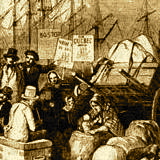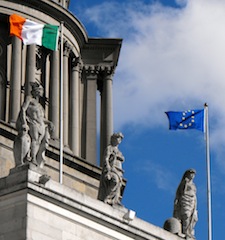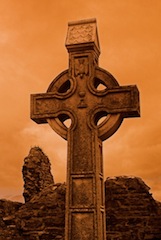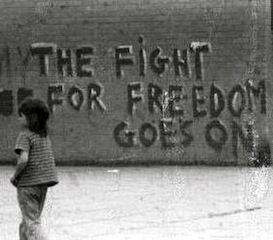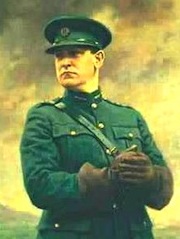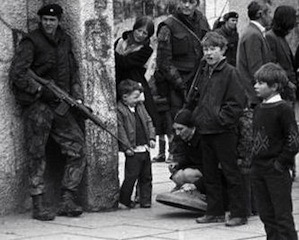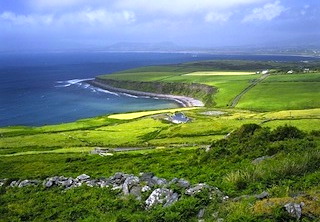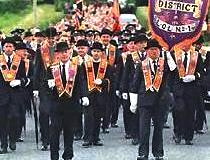| There is no
present or future in Ireland, only the past happening over and over again.
—Eugene O'Neill
|
The study of Irish history does not excite political animosity but leads to
the very opposite result. To thoroughly appreciate the history of this
country it is necessary to sympathise with all parties...
—A.G. Richey, A Short History of the Irish People (1869)
|
Being Irish, he had an abiding sense of tragedy, which sustained him
through temporary periods of joy.
—W.B. Yeats
|
AN
exasperated official in Northern Ireland, pondering the seemingly
insoluble political situation there, once remarked that the trouble
with Ireland is that it is a country with "too much history".
Is he right?
This colloquium surveys the social and political history of Ireland
and the Irish from the beginning of the nineteenth century to the
present day. The shaping and reshaping of this island's political,
economic, and social order will be studied in its relation to Britain
and its empire, the European continent, and the United States. The
scope of our study will be wide. We will trace the ideologies and
tactics of Irish republicanism and unionism, the struggle for political
separation from Britain, the Irish literary renaissance, the Irish
Diaspora and its effects on Ireland and abroad, the influence of
religion on Irish identities, the origins of the "troubles" in Northern
Ireland, and the shape of Irish culture and society into the twenty-first
century.
This course is designed to engage us at two levels. It is primarily
a reading-intensive survey of historical and literary scholarship
relating to Modern Ireland from the early nineteenth century onward. Yet
in the process, it forces us to examine what it means to be "Irish,"
a "nation," and a "people." Are Americans or Australians of Irish
descent part of the Irish nation? Are Ulster Protestants loyal to
the British crown also Irish (as they insist they are)? How are
ethnic identities, religious practices, and even the remembrance
of history being shaped to legitimize different political agendas?
As Ireland becomes a prosperous member of the European Union, does
it have a responsibility to accept immigrants and asylum seekers
as readily as it has always sent them abroad? As Irish cities become
racially and ethnically diverse, will these new residents and their
children ever become "Irish"? We will keep these and other questions
in mind as we study the social and political development of
Modern Ireland.
Readings for this course will combine historical scholarship with
literature, political philosophy, sociology, and memoirs from different
periods. Students are encouraged to view all of these sources as
historical texts and to consider broader questions about the nature
of colonialism, nationalism, religion, culture, ethnicity, gender,
and "identity".
|



